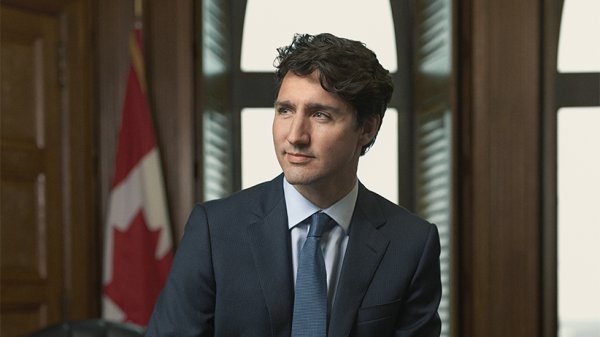It is becoming increasingly common—and socially acceptable—for men to describe themselves as feminists. Barack Obama, Justin Trudeau, Malcolm Turnbull and Bill Shorten are among the political leaders to publicly adopt the label.
BroadAgenda’s current ‘Meet the Male Feminist’ series is also part of this trend, featuring thoughtful contributions by male politicians, academics and journalists who seek to advance feminism in their personal and professional lives.

Professor Jonathan Crowe says that men shouldn’t call themselves ‘feminists’, because it could hinder the cause.
This level of high profile male support for feminism would have been unthinkable 10 or 20 years ago. It shows the growing acceptance of feminism as a mainstream social justice movement. This is surely a positive development.
The mainstreaming of feminism, however, arguably comes at a cost to its radical potential. One traditional goal of feminism is to ensure that women’s voices and perspectives are heard and taken seriously in their own right.
Feminism, on this view, works to create a space where women can speak authentically about their interests, concerns and lived experiences, which are too often silenced or forgotten in male-dominated social discourse.
The risk is that public discussions of feminism come to be unduly influenced by male voices
Does the publicity surrounding high profile male feminists help or hinder this goal? At best, it could help draw wider attention to feminist issues and create more opportunities for women’s concerns to be heard and addressed.
The risk, however, is that public discussions of feminism come to be unduly influenced by male voices—and thereby come to reflect a version of feminism that is less threatening from the dominant male point of view.

Are famous male feminists like Canadian Prime Minister, Justin Trudeau, harming the movement instead of helping it? (Photograph by Jessica Deeks, Source: Macleans)
Promoting a version of feminism deemed acceptable by powerful male interests also risks masking the diversity of feminist perspectives. It is unlikely to expose the complex and fraught intersections of race, class, sexuality, disability, religion and gender.
It is for these reasons that I have previously argued that men should be hesitant to call themselves feminists. Rather, they should consciously adopt a subsidiary, supportive and listening role in relation to the feminist movement.
I call this approach radical pro-feminism. It is radical in two ways. First, it preserves the potential of feminism to pose a genuine challenge to male-dominated power structures, avoiding the temptation to make it more socially palatable.
Pro-feminist men should be willing to recognise that they are not where women are; feminism is not about them;
Second, it requires men to play a supporting and enabling role, as opposed to taking the lead and setting the agenda. This, in itself, is a radical move, because it challenges social expectations about male and female behaviour.
Pro-feminist men should be willing to recognise that they are not where women are; feminism is not about them; and they are there to learn. This involves resisting cultural norms that construct men as leaders and women as followers.
There are many practical ways for men to advance feminist goals.
There are many practical ways for men to advance feminist goals. They can do a greater share of the housework, mentor and promote women in the workplace, speak out against sexual harassment, and challenge sexist language and attitudes.
They can create space for female voices, by deferring to women in meetings and discussions, listening actively and believing what they have to say, not interrupting them or taking credit for their ideas, and avoiding the temptation to mansplain.

(BroadAgenda would like to point out that this ridiculous photo from a commercial Library stock is what appears when we search images for ‘male feminist’. This image has nothing to do with feminism. It has a lot more to do with the huge gender disparity in unpaid domestic work … and the infuriating perpetuation of dumb, lazy stereotyping.)
They can also undertake political advocacy, research and activism on feminist issues such as domestic violence, sexual assault and reproductive rights, without seeking to take over the agenda or dominate discussions.
Kathleen Hanna (of Bikini Kill and Le Tigre) has said that ‘feminism isn’t something that you are, it’s something that you do.’ Pro-feminist men should take this to heart. Talk is cheap, but concrete action is what is really needed.
My advice to men who are asked if they’re feminists, then, is to say, ‘No, I’m a radical pro-feminist.’ And then explain why it’s important for men to support women to speak on their own behalf and have their voices heard.




